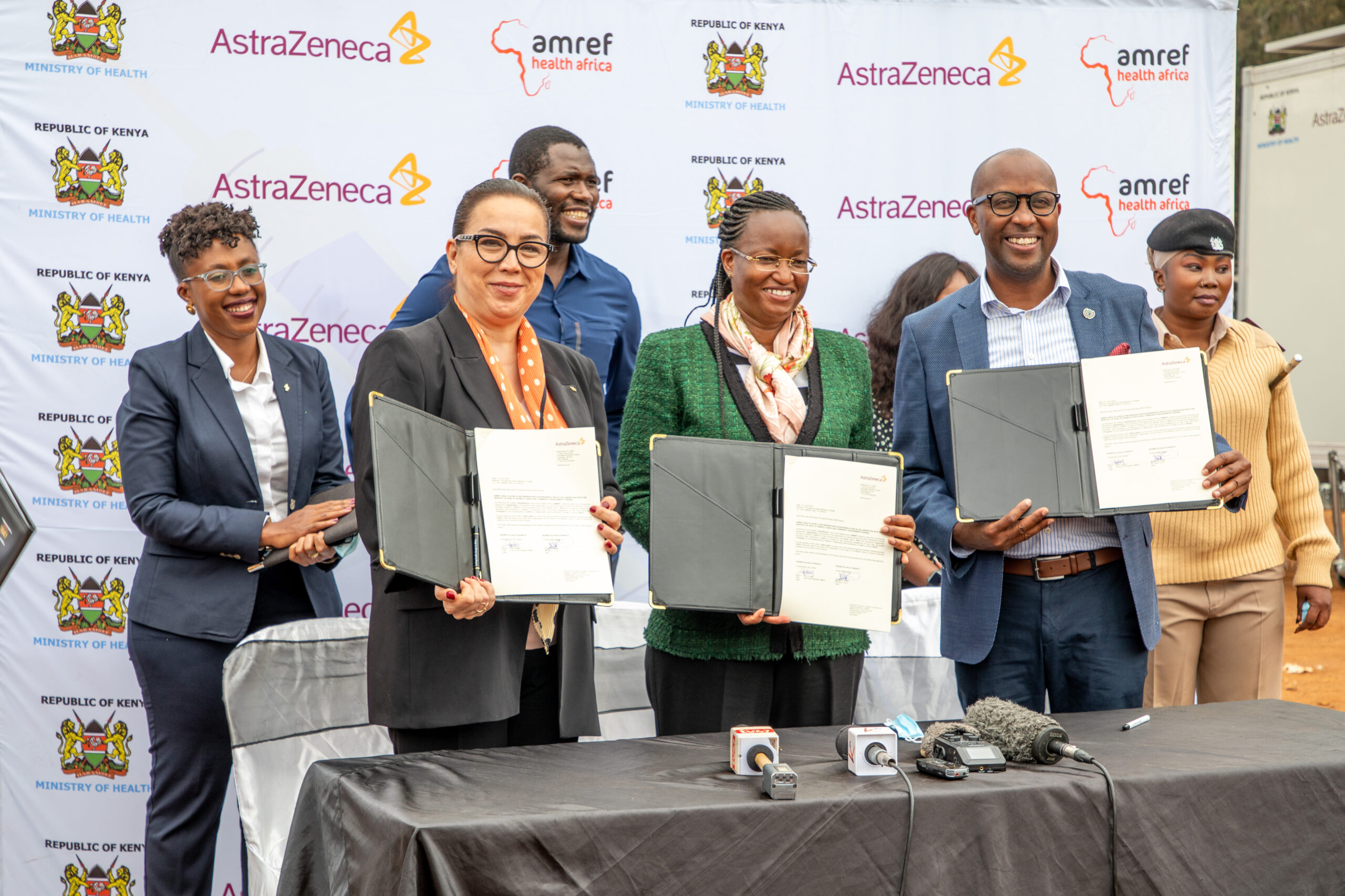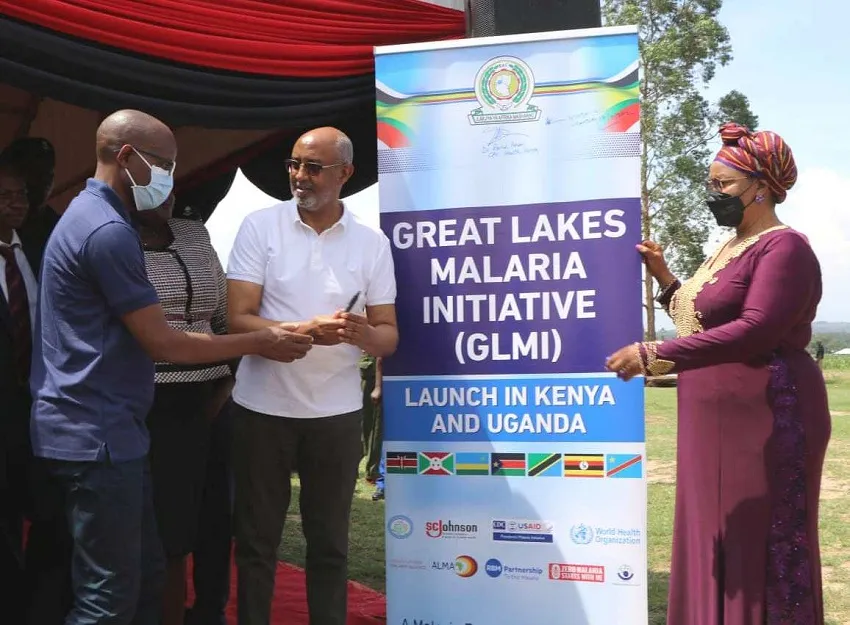Amref Health Africa’s Position Statement on Family Planning
Thursday, 30 March, 2017
Reproductive health is defined in the International Conference on Population and Development (ICPD) Programme of action as a state of complete physical, mental and social well-being in all matters relating to the reproductive system and to its functions and processes. This includes the right to autonomy and privacy in making sexual and reproductive decisions. However, despite considerable progress since the ICPD, millions of people – mostly disadvantaged women and adolescents – still lack access to sexual and reproductive health (SRH) information and services, including access to modern contraceptives and family planning services.
Preamble
Reproductive health is defined in the International Conference on Population and Development (ICPD) Programme of action as a state of complete physical, mental and social well-being in all matters relating to the reproductive system and to its functions and processes. This includes the right to autonomy and privacy in making sexual and reproductive decisions. However, despite considerable progress since the ICPD, millions of people – mostly disadvantaged women and adolescents – still lack access to sexual and reproductive health (SRH) information and services, including access to modern contraceptives and family planning services.
The World Health Organization has defined family planning (FP) as a method that allows individuals and couples to anticipate and attain their desired number of children and the spacing and timing of their births. Family planning is achieved through use of contraceptive methods and the treatment of involuntary infertility, and is a key component of comprehensive sexual and reproductive health care.
A woman’s ability to space and limit her pregnancies has a direct impact on her health and well-being as well as on the outcome of each pregnancy. Experience in various countries has shown that educating women on the health benefits of delaying, spacing and limiting births to the desired number not only helps families meet their fertility goals but also improves children’s health and chances of survival, as well as that of their mothers:
Better birth spacing reduces incidence of low birth weight and poor maternal nutrition.
Access to family planning reduces the number of unintended pregnancies and the dangers associated with unsafe abortion, which is one of the main causes of maternal death, especially in young women.
About 1.2 million infant deaths can be averted globally each year by preventing unintended pregnancies.
Unplanned pregnancies often divert women from other life plans; girls drop out of school due to unintended pregnancies, with negative consequences for their further development and economic empowerment.
The health and welfare of families and communities can be improved by making high quality family planning services and commodities available to all who want and need them; parents are able to limit the size of their family to the number of children they desire and are able to care for, thus contributing positively to social and economic development.
Despite the health and social benefits to mothers, their children and communities of good access to quality family planning services, global data shows that an estimated 215 million women of reproductive age who are married or in a union have an unmet need for family planning. This
lack of access to family planning methods is a major contributor to the preventable deaths of 500,000 women annually due to complications of pregnancy, childbirth and unsafe abortion.
Access to family planning is estimated to prevent about one-third of pregnancy-related deaths, as well as 44% of neonatal deaths. This is because timing and spacing of pregnancies – at least two years between births – helps to prevent adverse pregnancy outcomes, including high rates of prematurity, malnutrition and stunting in children. Adequate spacing of pregnancies for optimal outcomes is therefore necessary in all settings, both rich and resource-limited.
Unmet need for family planning is one of the primary causes of induced abortion. It is estimated that of the 205 million pregnancies that occur globally each year, about 80 million are unplanned. Of these about 42 million result in terminations, with about 53% of these being unsafe abortions. The reality is that about 97% of unsafe abortions occur in developing countries, which also have the highest rates of maternal mortality, with unsafe abortion accounting for about 13% of all maternal deaths annually. Ensuring that quality family planning services are accessible, available and culturally appropriate, so that the need for contraception is met and unwanted pregnancies are avoided, should be a high priority for health services in order to substantially reduce maternal mortality and protect maternal health. Where unplanned pregnancies occur, women should have ready access to reliable information and compassionate counselling. As recommended by the 1994 International Conference on Population and Development, “in no case should abortion be promoted as a means of family planning”. However in cases where women’s only recourse has been abortion, such abortions should be safe, and in all cases, as part of comprehensive reproductive health care, women should have access to quality services for the management of the complications and consequences of abortion. This includes the provision of post-abortion counselling, education and family planning services.
The ability to determine whether or not to become pregnant and how many children to have is an important human and reproductive health right. Family planning enables this on the principle that it is voluntary, and available methods of contraception are customised to the needs of individuals and couples.
Unfortunately, in many settings, social and cultural norms prevent women and couples from accessing reproductive health care, severely limiting their reproductive choices. Traditional norms surrounding the behaviour of women, including gender inequity, low socio-economic standing, low literacy rates, early marriage and high fertility often limit women’s ability to act in their own interest and compromise their access to reproductive health care and family planning services.
Family planning remains one of the most cost-effective public health measures available in developing countries. Studies have shown that family planning, as an integral component of maternal and reproductive health services can help countries achieve the Millennium Development Goals by lowering rates of maternal and infant mortality and improving health outcomes for mothers and infants. Family planning is an essential component in the prevention of mother-to-child transmission (PMTCT) of HIV and in adolescent reproductive health care programmes. There is also evidence that expanding access to and improving the quality of family planning programmes, particularly with the involvement of men, can play a role in improving
gender equity, and is central to improving and maintaining the health of individuals, families and societies and helping them reach their full potential.
Policy
AMREF is committed to and supports the provision of quality comprehensive sexual and reproductive health services as an integral component of health care. AMREF believes in the attainment of sexual and reproductive health as a basic human right, namely that people are able to have a responsible, satisfying and safe sex life, that they have the capability to reproduce and the freedom to decide if, when and how often to do so.
AMREF will therefore work with governments and other partners to promote access to quality family planning services as an essential component of good reproductive health care. AMREF promotes the right of men and women to be informed about and have access to safe, effective, affordable and acceptable family planning methods of their choice, and the right of women to access health care services that will enable them to proceed safely through pregnancy and childbirth, thus providing couples with the best chance of having a healthy infant.
One of the challenges of access to family planning in developing countries is the quality of health systems and supply chain management for reproductive health commodities. AMREF therefore believes that to improve access, family planning services should be integrated into general health services. This includes integration of family planning services into HIV programming, such as voluntary counselling and testing services, PMTCT, HIV care and treatment services, and promotion of condoms as commodities that provide contraception and prevent HIV transmission. Such integration will increase the likelihood that women will obtain the information they need to make informed decisions regarding fertility and disease prevention.
Family planning counselling should also be integrated into antenatal, postpartum, and post-abortion care to provide women with critical information at a time when they need to know about the benefits of birth spacing.
AMREF will work with communities to facilitate the communication of messages about family planning to people where they live and work as part of community systems strengthening. Community level communication can help health workers better understand how to work within cultural and religious environments to address norms and practices that may be detrimental to optimal birth spacing.
AMREF will strive to improve community health capacities and promote community-based distribution strategies to women in their homes and communities to reduce the social and economic costs of accessing family planning services.
In its continuing efforts to strengthen the capacity of health systems in Africa to improve maternal, neonatal and child health, AMREF will promote integration of family planning into all maternal, neonatal and child health services to optimise opportunities to provide women with family planning information and services.
AMREF advocates for policy actions such as legislation, institutional arrangements and dedicated resources to strengthen women’s rights, limit harmful traditional practices, improve women’s opportunities to stay in school and participate in economic activities through access to high quality reproductive health and family planning services.
AMREF is committed to working with political, global health, and policy leaders as well as financing institutions in the public and business sectors to help ensure political commitment and adequate resource commitment to family planning programmes.
AMREF advocates for elimination of policies, social norms and practices that limit access of adolescent girls and boys to age-appropriate family planning services and information. In addition, AMREF will support efforts that enable young people to have access to age- and culturally appropriate information about contraceptive options through schools and other relevant channels, including community and faith-based organisations.
AMREF will partner with governments, civil society organisations and communities to promote gender-sensitive policies and programmes, especially within the health and education sector, in order to help policy makers and community leaders recognise and remove obstacles to accessibility and availability of reproductive health and family planning services.
AMREF remains committed to its work in educating women on the health benefits to children of delaying, spacing and limiting births and providing them with high quality family planning services to help families meet their fertility goals and improve children’s health and survival. Given the importance of Africa’s rapidly growing young population, AMREF recognises the importance and special needs of adolescents for age-appropriate family planning services.
AMREF therefore supports provision of youth-friendly services that maintain confidentiality and privacy and are accessible and affordable to young people, and training of health workers to address the special concerns of young people.
AMREF recognises that in many settings demand for family planning services is low because of lack of information, and policies or socio-cultural practices that limit access to these services. While demand may exist in other settings, it cannot be met because services are inadequate. AMREF is therefore committed to improving access to family planning services both by helping create demand through provision of education and information, as well improving access through support for service provision and integration.
References
- Family Planning Fact Sheet No 351 – World Health Organization, 2013.
- Family planning: a key component of post abortion care Consensus Statement: International Federation of Gynecology and Obstetrics (FIGO), International Confederation of Midwives (ICM),
- International Council of Nurses (ICN), and the United States Agency for International Development (USAID) 25 September 2009
- Family Planning for Health and Development. Actions for Change. USAID, WHO, UNFPA 2009.
- Family Planning and the MDGs – Saving Lives, Saving Resources. USAID Health Policy Initiative 2009. Induced abortion: estimated rates and trends worldwide. Gilda Sedgh, Stanley
- Henshaw, Susheela Singh, Elisabeth Åhman, Iqbal H Shah. Lancet 2007; 370: 1338–45
- Making Reproductive Rights and Sexual and Reproductive Health a Reality For All. UNFPA 2008.
- Summary of the ICPD Programme of Action. UNFPA 1995.
Download as a PDF File







